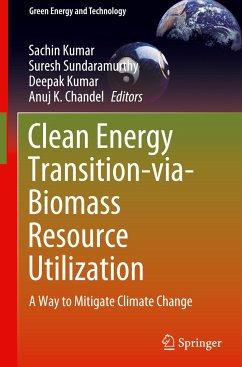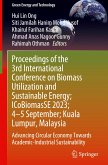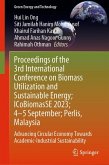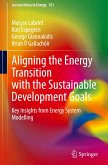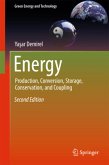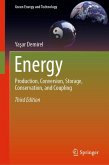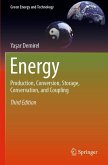This book highlights clean energy transition via sustainable utilization of biomass resources, viz. forestry, agriculture, agroforestry, grassland, and seaweeds to climate change mitigation.
Bioresources have tremendous potential to mitigate global warming. Also, biomass is expected to play a multifunctional role including food production, source of energy and fodder, biodiversity conservation, and yield of goods and services to the society. It brings together perspectives of various communities involved in the research and regulation of bioenergy deployment in the context of climate change mitigation. The book presents the way forward to policy makers and stakeholders involved with bioenergy development. This development may be directive challenges in the transport sector where options such as hydrogen and electric vehicles relying on hydro, wind, and solar PV will require decades to become established on a substantial scale. Furthermore, meeting ambitious climate change targets will also require environment-friendly fuels in air and marine transport where no alternative to biofuels is currently available.
The process design-via-onion model for sustainable utilization of biomass resources is also one of the most important subjects of the book. This book includes state-of-the-art approaches on bottlenecks and circular economy analysis for biomass energy use to reduce climate change and sustainability frameworks to guide bioenergy development.
Bioresources have tremendous potential to mitigate global warming. Also, biomass is expected to play a multifunctional role including food production, source of energy and fodder, biodiversity conservation, and yield of goods and services to the society. It brings together perspectives of various communities involved in the research and regulation of bioenergy deployment in the context of climate change mitigation. The book presents the way forward to policy makers and stakeholders involved with bioenergy development. This development may be directive challenges in the transport sector where options such as hydrogen and electric vehicles relying on hydro, wind, and solar PV will require decades to become established on a substantial scale. Furthermore, meeting ambitious climate change targets will also require environment-friendly fuels in air and marine transport where no alternative to biofuels is currently available.
The process design-via-onion model for sustainable utilization of biomass resources is also one of the most important subjects of the book. This book includes state-of-the-art approaches on bottlenecks and circular economy analysis for biomass energy use to reduce climate change and sustainability frameworks to guide bioenergy development.

